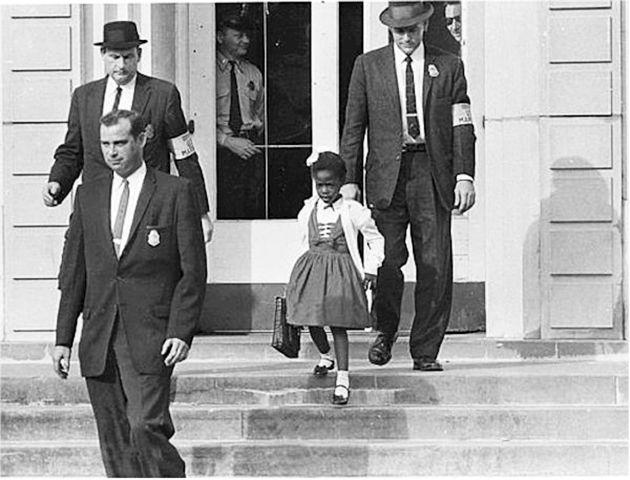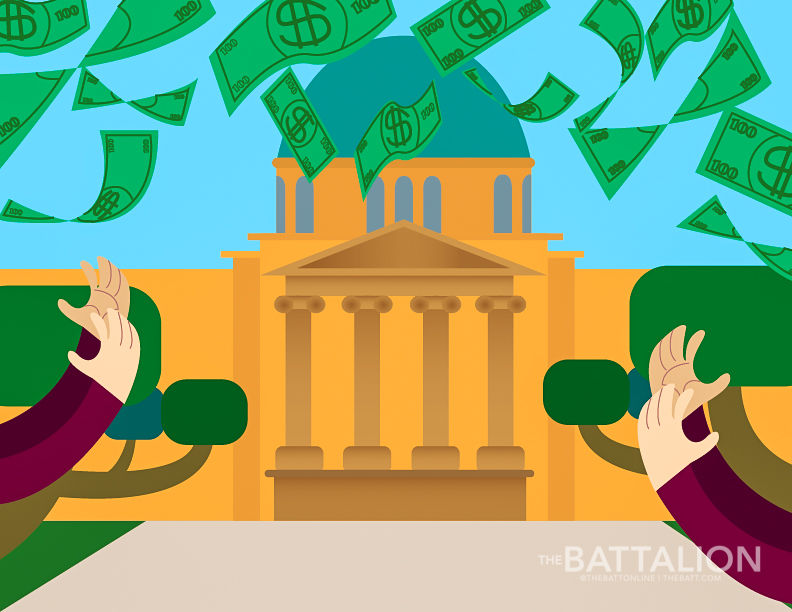“I was not afraid,” civil rights icon Ruby Bridges said. “They opened the door and I remember them grabbing my hand and saying walk straight ahead and not to look back.”
Almost 60 years after making history as the first black student to attend William Frantz Elementary School in 1960 at 6 years old, Bridges spoke Thursday morning to an audience of students and faculty during the MSC Woodson Black Awareness Committee’s 10th annual Martin Luther King Jr. Breakfast.
The event, which sold out with more than 750 people in attendance, also featured a spoken word performance by Prentice Powell, a performance by the Voices of Praise Gospel Choir, a welcome presentation from University President Michael Young. Bridge’s Q&A session was moderated by Cushing LIbrary curator and associate professor of Africana Studies Rebecca Hankins.
Bridges recounted that her first day at the new school started off with U.S. marshals knocking on her door to escort her. Bridges related her experience walking to school to the mirror image of a Mardi Gras parade that she grew up attending when she was a little girl.
“I saw mobs of people and they were standing behind these barricades, which we have at Mardi Gras,” Bridges. “There were police officers everywhere, they were on horseback, which we see at Mardi Gras. And the people were screaming and waving, which we see at Mardi Gras. So I actually thought when we turned that corner, ‘Oh, it’s Mardi Gras and I’m in the parade!’”
Bridges later described nightmares that she would have of the mobs of protests, and said her mother would encourage her to pray before she went to sleep.
“I would say my prayers and the nightmare would go away, and so she said ‘Well, if you’re ever afraid, you can always say your prayers.’ And for me, my prayers worked and so that, I think, was the beginning of my faith,” Bridges said. “I believe that is what really carried me through.”
Even amidst the challenges she faced in first grade, Bridges said she learned a valuable lesson that year from her teacher who sincerely impacted her life.
“I always say the lesson I really took away from first grade is seeing Ms. Henry for the first time, having her look exactly like the mob outside, but having her show me her heart,” Bridges said. “Even at six I knew you can’t look at a person and judge them. That you have to allow yourself an opportunity to get to know them.”
Bridges said that when she first walked the halls of William Franz she had the innocence and purity of a child’s perspective and she had no idea what segregation truly meant at the time.
“None of our babies come into the world knowing anything about disliking one another, they know nothing about the color of one’s skin, nothing about racism,” Bridges said. “And so I didn’t, and my parents didn’t try to explain that to me.”
During the performance by world-traveling spoken word artist Powell, he said he prays that in the midst of a divided world, that people would be unified.
“The reality is there is a war amongst us in this country,” Powell said. “I pray that we allow us to leave ourselves to stop being so selfish, to stop being so conceited, to stop feeling so entitled, to stop feeling like we’re owed anything. I pray that we’re able to truly get along.”
Gentill Abdulla, physics sophomore and programmings officer for the Alpha Phi Alpha fraternity — of which MLK was a member at Boston University — honored MLK and the legacy he left for this country.
“Though you may recognize this man by the words he has spoken, there is no doubt that his actions have resonated throughout all of American history,” Abdulla said. “Dr. Martin Luther King Jr. was a principled man, born into an era of history that in recent times seems strikingly similar. King was in many ways the very embodiment of strength, courage and perseverance.”
When on stage, Young reflected on the importance of the meaning behind MLK Day, and its implications in today’s society.
“This is an important day in this university as it is every year,” Young said. “It gives us an opportunity to reflect on values that are important to the university … to reflect on progress that’s been made, to reflect on the length of the journey that we still have to walk [and] an opportunity to celebrate each other. But [it is] also a reminder of how important these issues are to us today, every bit as much as they were so many years ago when Dr. King was raising awareness throughout the entire United States.”









